#read saadi
Text

15 notes
·
View notes
Text
We will go to God
naked.
Our shroud is our blood,
our camphor:
the teeth of dogs
turned wolves.
The closed cell suddenly swung open
for the female soldier to come.
Our swollen eyes could not make her out,
perhaps because she comes from a mysterious world,
she did not say a thing;
she was dragging my brother’s bloody body behind her,
like a worn-out mat.
We will walk to God
barefoot:
our feet lacerated,
our limbs wounded.
Are Americans Christians?
We have nothing in the cell to wipe the lying body,
only our blood
congealing in our blood
—and this smell coming from the continent of slaughterhouses
. . . Angels will not come here,
the air is perturbed,
these are the wings of hell’s bats,
The air is motionless.
We have been waiting for you, O Lord.
Our cells were open yesterday.
We were lifeless on their floor,
and you did not come, O Lord.
But we are on the way to you.
We will remain on the way even if you let us down.
We are your dead sons and have declared our resurrection.
Tell your prophets to open the gates of cells and paradises!
Tell them that we are coming!
We have wiped our faces and hands with clean earth.
The angels know us one by one.
The Wretched of the Heavens, Saadi Youssef
4 notes
·
View notes
Text
Having a high-speed come-apart because I'm pretty sure one of my favorite authors read the fic I wrote for one of her series and referenced it in one of the books???
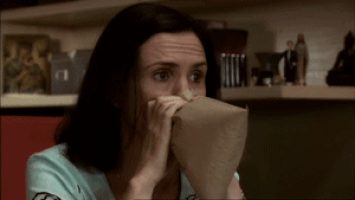
#i'm gonna hurl#sassy panda ari saadie i read the passage#it's a really really freaky coincidence if it's a coincidence#help#i'm legit shaking right now#like i feel like I'm gonna puke right now#not obey me#personal#somebody tell me i'm not dying
6 notes
·
View notes
Text


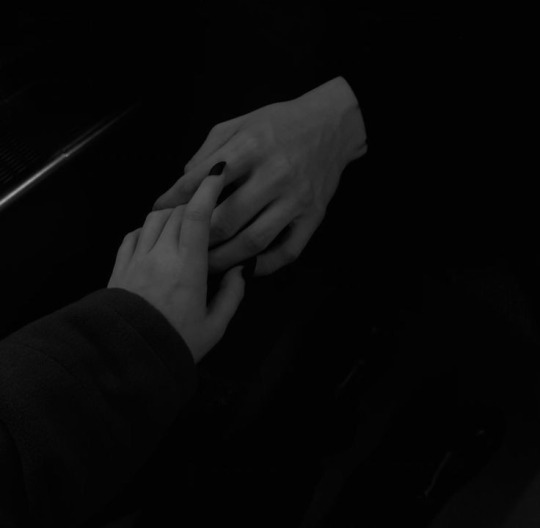





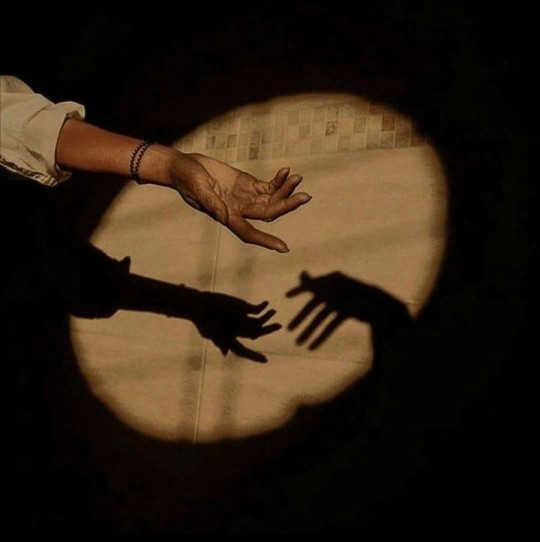



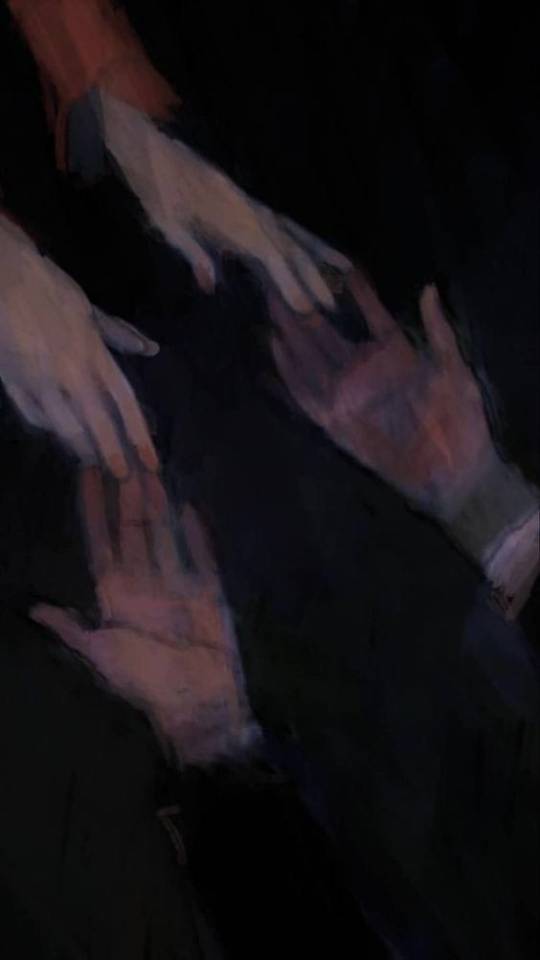
But I still don't know how to hold your hand without reading the ugliness of my own, But I can't contain my soul from enveloping yours !
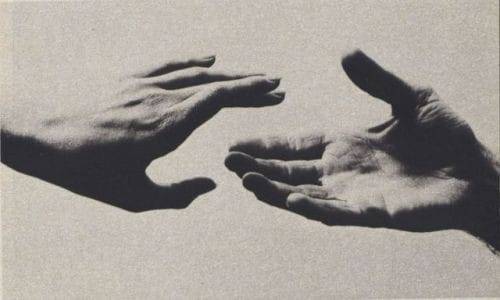
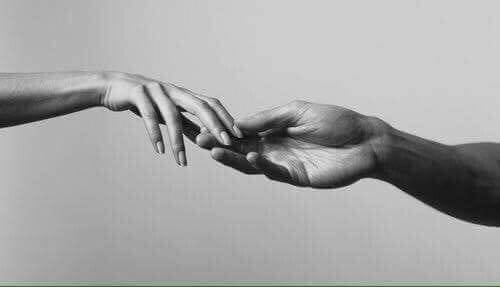
Web weaving about holding hands an emotion
{quotes:Mary Ruefle/uk/Francis Forever Song by Mitski/The Hand Has Twenty-Seven Bones by Natalie Diaz/Hélène Cixous, from “Olivier De Serres- A Single Passion Two Witnesses,” Love Itself: In the Letter Box (Polity Press, 2008) /uk /Saadi Youssef, from ‘Solos on the Oud’, Without an Alphabet, Without a Face: Selected Poems (trans. Khaled Mattawa) /@fatimaamerbilal from her garden yearns more for visitors than water. }
#web weave#web weaving#holding hands#dark academia#dark acadamia aesthetic#dark acadamia quotes#classic literature#literature#lit#light acadamia aesthetic#light academia#cottage academia#cottagecore#poetry#writing#words#paintings#writers and poets#books and libraries#spilled thoughts#spilled ink#romanticism#grey academia#grey moodboard#chaotic academic aesthetic#spilled writing#quotes#quotation#writers corner
8K notes
·
View notes
Note
whats your all time favorite book? you may give me other recs too if you'd likee! 💗
I don't have an all time favourite because different books have made me lose my mind in different ways <3 but I CAN give you a breakdown based on some of my own personal categories:
Books I Would Take Into a Bunker For 9 Months (aka Absolutely No One Talk to Me)
The Brothers Karamazov, Dostoevsky
Ich und Du, Martin Buber
The Waves, Virginia Woolf
The Snake, Stig Dagerman
The Myth of Sisyphus and Other Essays, Albert Camus
The Hitchiker's Guide to the Galaxy
An Inventory of Losses, Judith Schalansky
Invisible Man, Ralph Ellison
We, Yevgeny Zamyatin
Books That Did That™️
Secondhand-Time, Svetlana Alexievich
We Love Glenda So Much & Other Tales, Julio Cortázar
The Memory Police, Yoko Ogawa
At Swim-Two-Birds, Flann O'Brien
Deaf Republic, Ilya Kaminsky
Tess of the d'Urbervilles, Thomas Hardy
A Thousand Splendid Suns, Khaled Mattawa
The Chaos Walking Trilogy, Patrick Ness
Ways of Seeing, John Berger
German Autumn, Stig Dagerman
A Lover's Discourse: Fragments, Roland Barthes
A Girl Is A Half-Formed Thing, Eimear McBride
Night Watch, Terry Pratchett
Wuthering Heights, Emily Bronte
Women in Love, D.H. Lawrence
Bluets, Maggie Nelson
Antigone, Jean Anouilh
They: A Sequence of Unease, Kay Dick
A Doll's House, Henrik Ibsen
The Condemned, Stig Dagerman
Books That If I Could Erase My Memory and Read Again for the First Time I Would 100% Erase My Memory and Read Again for the First Time
The God of Small Things, Arundhati Roy
Água Viva, Clarice Lispector
The Bloody Chamber & Other Stories, Angela Carter
A Moth to a Flame, Stig Dagerman
Paris, When It's Naked, Etel Adnan
Without an Alphabet, Without a Face, Saadi Youssef
A Field Guide to Getting Lost, Rebecca Solnit
One Hundred Years of Solitude, Gabriel García Marquez
View with a Grain of Sand, Wislawa Szymborska
Possession, A.S. Byatt
Four Bare Legs in a Bed: Stories, Helen Simpson
The Unbearable Lightness of Being, Milan Kundera
Not to Read: Essays, Alejandro Zambra
The Princess Bride, William Goldman
1K notes
·
View notes
Note
God, I read liberal Zionists & centrists and I’m just so insanely happy that Algeria got its independance 60 years ago, imagine the horrifying opinions and articles about the FLN.
I mean we still got the horrifying opinions and articles about the FLN and about Algerians in general but we sure did avoid social media and whenever colonizers open their throats online I’m glad that I wasn’t alive back then and I admire Palestinians and Sahrawi people especially the women who stay strong despite all the doxing, insults, threats and constant dehumanization.
1st headline: Brutal terrorist soar in Algeria
2nd headline: Algeria is France and France won’t recognize any other authority than itself on its own territory
3rd headline: Really bad situation in Algeria where outlaws attacked military outposts
4th headline: Mr.Guy Mollet will have extended special powers for Algeria
5th headline: De Gaulle “I understand you!” (It’s about De Gaulle speech reassuring the settlers telling them he understood them and intended to keep Algeria under French rule.
6th headline: Bloody insurrectional movement started on Saturday at noon is crushed in a couple hours
7th headline: Good catch in a murderers den in the Casbah (the people they call murderers were the Freedom fighter under the orders of Yacef Saadi)
8th headline: You need to get in the mountains and stay there. Out first objectif “pacify” the rest will happen naturally.
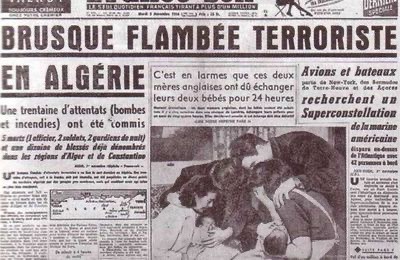
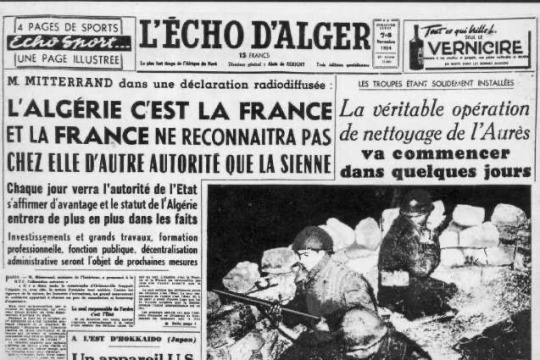
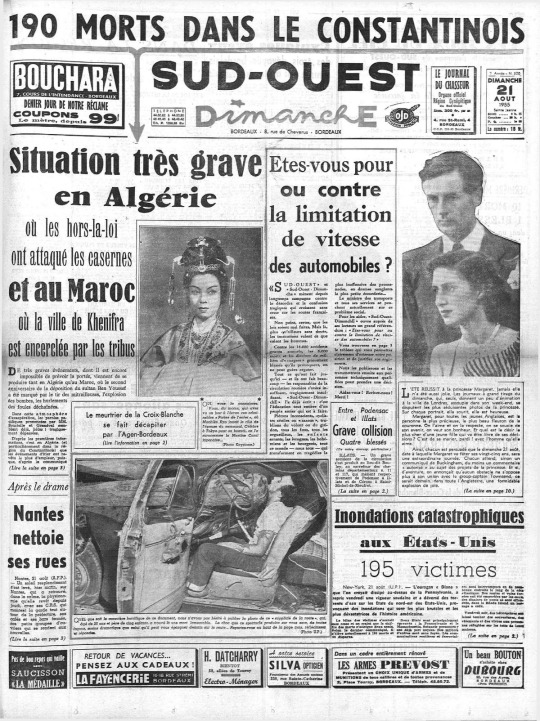
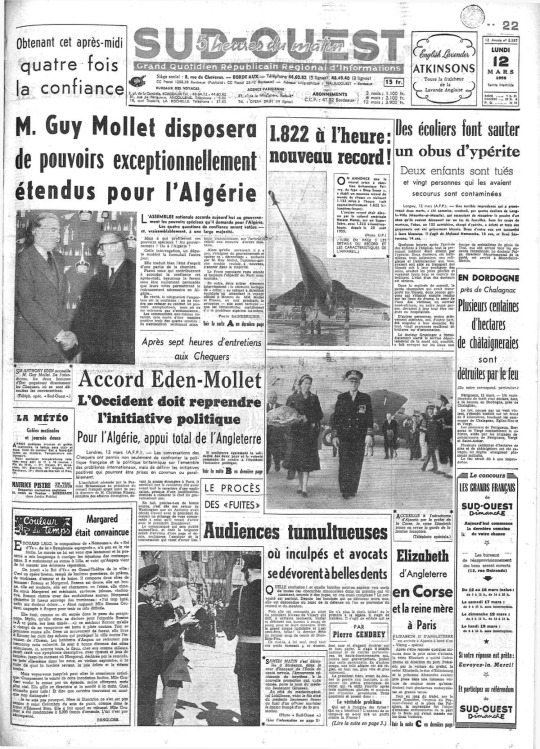
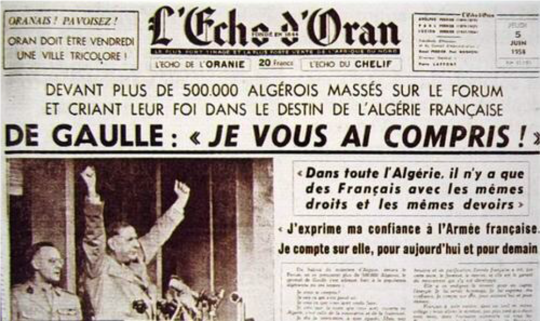
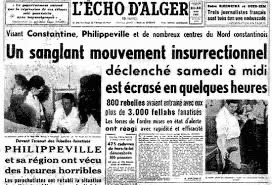
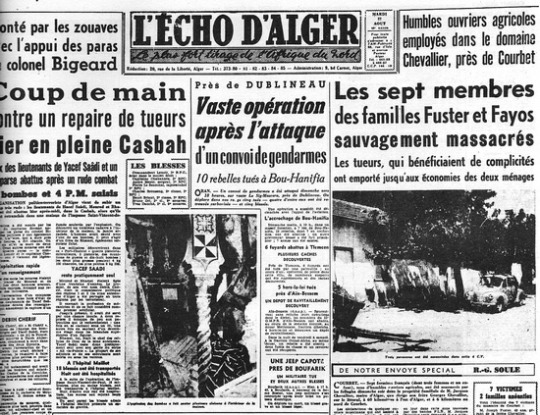
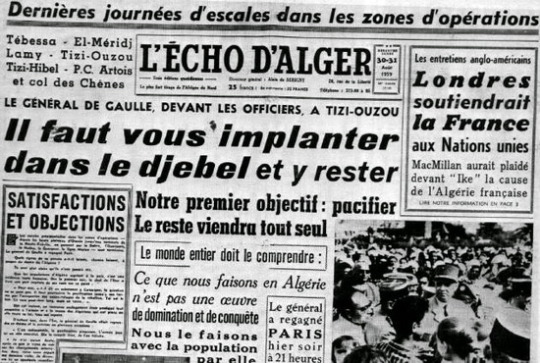
That being said… this is how it ended. With headlines about ceasefire and independence. And this is also how it will end for Palestine. With a ceasefire followed by freedom and independence from colonialism.
9th headline: A huge victory for peace: ceasefire in Algeria
10th headline: With independence and teamwork; Algeria will live.
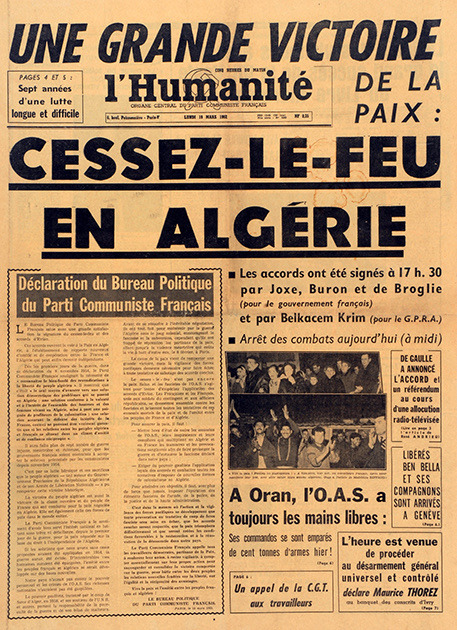
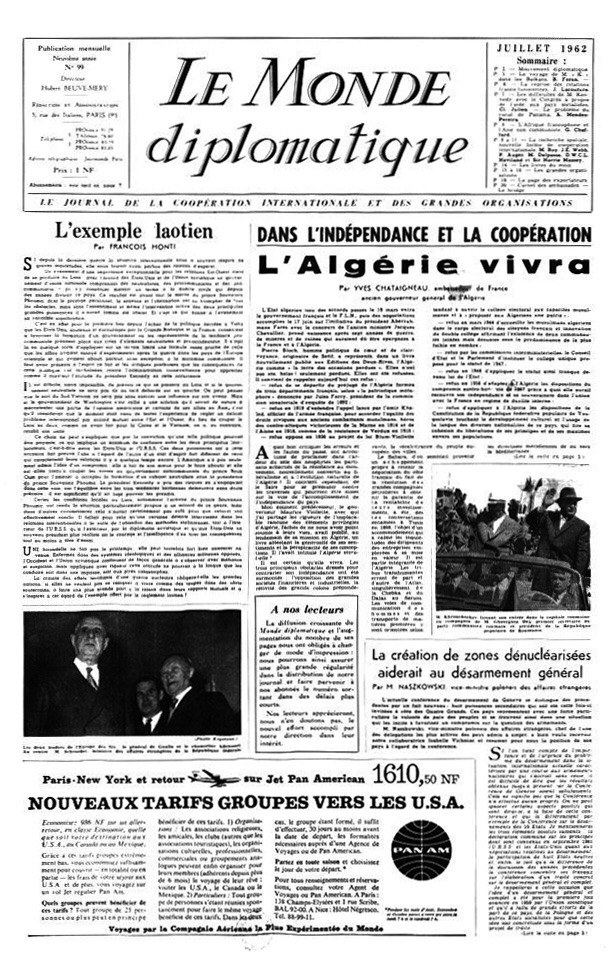
321 notes
·
View notes
Text
"Attar is one of the greatest poets of the Persian language. Nonetheless, his popularity - both in Iran itself and in the West (Goethe, for example, touched on him only briefly in his West-Eastern Divan) - does not match that of Ferdowsi (d. 1020), Omar Khayyam (d. c.1132), Rumi, Saadi (d. 1292) or Hafiz (d. 1389); occasionally he is even omitted from the line of seven Persian poet-princes in favour of Jami (d. 1492). One possible reason for this is that the composition of his poetry is too artful, too complex to be effective in the town squares and teahouses, while at the same time, many of his stories and figures may seem too coarse, too folk-like and too sarcastic to be at the forefront of the high spiritual literature cultivated at courts in former times and in middle-class households today. Attar’s poetry, on the other hand, is far less stilted than that of most Persian poets but, rather, unadorned, clear and immediate. The pain it expresses is not spiritually filtered as in Rumi, far less metaphysically elevated than in Saadi, and not sublimated into pleasure as in Omar Khayyam - where Hafiz turns the earthly into the mystical, Attar strips mysticism down to its leaden, earthly foundation in order to scream his longing to the heavens."
--Navid Kermani, The Terror of God: Attar, Job and the Metaphysical Revolt
.
I asked my professor which masnavi (Persian epic poem) he thinks is the greatest ever written. He replied, Rumi's Masnavi (the only masnavi Rumi wrote). Shock. How can there be a masnavi greater than Attar's Conference of the Birds? (There are 4 authentic Attar masnavis; sadly, as far as I know, Conference of the Birds is the only one that has been translated into English.) Reading through Rumi's masnavi I think I am still team Attar. It's Attar's coarseness I love--he is a poet of mad saints and freaks. In Rumi's Masnavi, the absence of a frame story and the pious/didactic tone is somewhat of a barrier for me. The pieces don't quite hang together, whereas Attar's Conference of the Birds is intricately structured--there are stories within stories within stories, each bird with its idiosyncratic psychology--a narrative arc that mirrors the journey of the soul across the seven valleys. But maybe there is a difference between reading a sufi text for its poetry rather than religious instruction, I don't know.
#attar#Rumi#persian poetry#poetry#literature#masnavi#Navid Kermani#islam#islamic mysticism#islamic literature#mysticism#sufism#sufi literature
221 notes
·
View notes
Note
Do you have any poetry recommendations? The poem poll made me realize that I like. ONLY know Iraqi poets. Like the only non-Iraqi poet I can name off the top of my head is Robert Frost
i'm literally hooked on poetry. even on days where i can't sit down to read a book, i try to consume at least one poem a day bc it keeps me sane. it actually does. i recommend signing up to one poem a day newsletters--those have been a game changer for me. as for recommendations, my favorite poems change every week, but current faves (whose authors i regularly go back to/are a good starting point) would be:
elegy for my sadness - chen chen (Who invented the word / “ennui”? A sad Frenchman? / A centipede? They should’ve never / been born. They should’ve seen me / in Paris, a sad teenage / exchange student. I was so sad / & so teenaged, one day my host sister / gripped my hand hard & even harder / said, SOIS HEUREUX. / BE HAPPY. & miraculously, / I wasn’t sad anymore. / All I felt was the desire to slap my host sister. / See, I was angry in Paris, which is clearly / not allowed. One can be sad in Paris (I was) / & one can be in love in Paris (I was not), / but angry? Angry in Paris?")
a pity, we were such a good invention - yehuda amichal ( "A pity / We were such a good / And loving invention / An aeroplane made from a man and wife / Wings and everything / We hovered a little above the earth")
like a small cafe, that's love - mahmoud darwish ("I say to myself at last / Perhaps she who I was waiting for / was waiting for me, or was waiting for some other man / or was waiting for us, and did not find him/me.")
bible study - tony hoagland ("Who knows, this might be the last good night of summer / My broken nose is forming an idea of what’s for supper / Hard to believe that death is just around the corner / What kind of idiot would think he even had a destiny?")
mother and child - louise gluck ("Why do I suffer? Why am I ignorant? / Cells in a great darkness. Some machine made us; / it is your turn to address it, to go back asking / what am I for? What am I for?")
america, america - saadi youssef ("We are not hostages, America, / and your soldiers are not God's soldiers... / We are the poor ones, ours is the earth of the drowned gods, / the gods of bulls, / the gods of fires, / the gods of sorrows that intertwine clay and blood in a song... / We are the poor, ours is the god of the poor, / who emerges out of farmers' ribs, / hungry / and bright, / and raises heads up high...")
the duino elegies (seventh elegy respectively) - rainer maria rilke ("Not only the devotion of these unfolded forces, / not only the paths, not only the evening fields, / not only, after a late storm, the breathing freshness, / not only approaching sleep and a premonition, evenings... / also the nights! Also the high summer nights / also the stars, the stars of this Earth! / O to be dead at last and know them eternally, / all the stars: for how, how, how to forget them!")
the endlessness - ada limon ("How was i supposed to feel then? About moving in the world? How could I touch anything or anyone without the weight of all of time shifting through us?")
psalm - adonis ("Open my memory and study my face beneath its words, learn my alphabet. When you see foam weaving my flesh and stone flowing in my blood, you will see me. I am closed like a tree trunk, present and ungraspable like air. Thus I cannot surrender to you.")
the war works hard - dunya mikhail ("The war continues working, / day and night. / It inspires tyrants / to deliver long speeches / awards medals to generals / and themes to poets / it contributes/ to the industry / of artificial limbs / provides food for flies / adds pages to the history books / achieves equality / between killer and killed / teaches lovers to write letters / accustoms young women to waiting / fills the newspapers / with articles and pictures / builds new houses / for the orphans / invigorates the coffin makers / gives grave diggers / a pat on the back / and paints a smile on the leader's face.")
#this list is me being conservative btw bc i got overwhelmed looking at the poetry list in my notes app ... its so hard to decide#a couple of these are iraqi poets but cmon#it's not a poetry list without mikhail and youssef's genius#poetry recs
78 notes
·
View notes
Photo
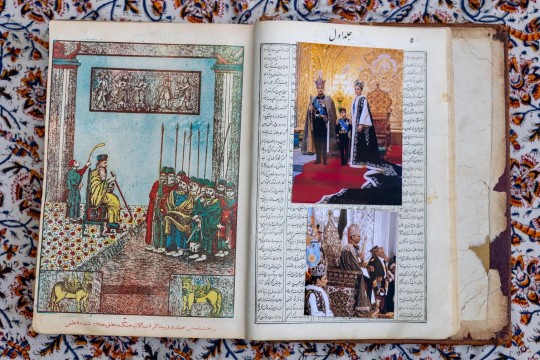
(16/54) “When the children were old enough I started reading them Shahnameh before they went to sleep. The stories of Rostam were too violent. They’d cry and cry. So I started with the stories of Iran’s mythic kings. These were the first kings of Iran. They discovered fire, language, and law. Some of them spoke to animals. Others lived for hundreds of years and sat on floating thrones made entirely of precious stones. It’s not known if Ferdowsi intended to name his book Shahnameh. The Book of Kings. But the title fits. For as long as there has been an Iran, there has been a king. In 1967 Mohammed Reza held a coronation ceremony. By that time he’d already been king for twenty years. But he’d wanted his coronation to wait, until Iran was prosperous. And now it was. The Shah had come a long way since that day I’d first seen him in the shrine. He’d tightened his grip on power, and his popularity was at an all-time high. The White Revolution had been a massive success. Iran was rapidly industrializing. Millions of Iranians were lifted out of poverty. Hundreds of new schools and universities were built. And it was a time of great freedom. Iranian women had more rights than anywhere else in the Muslim world. They could vote, obtain a divorce, own property, and run for office. In the words of Saadi: ‘The homeland is where no one disturbs the other.’ In Tehran you could see women in mini-skirts standing next to women who were fully-veiled. On the day of his coronation The Shah rode to the palace in a golden carriage pulled by eight Hungarian stallions. As he passed the streets were filled with shouts of ‘Long Live The King!’ Trumpets blared. Guns fired. The Air Force dropped 17,532 roses from the sky. One for every day of his life. At the coronation a crown of diamonds was placed upon his head, and he took his seat on the famous Naderi throne. It was decorated with carvings of lions and dragons. And it was covered with 25,000 precious stones.”
هنگامی که بچهها به سن دبستان رسیدند، شبها خواندن داستانهای شاهنامه را پیش از خوابشان آغاز کردم. بسیاری از داستانهای رستم پر از خون وخشونت بودند. آنها را به گریه می انداخت. بنابراین از داستانهای پادشاهان افسانهای ایران آغاز کردم. آنها نخستین پادشاهان ایران و جهان آشنای آن روزگار بودند. آفرینندهی آتش، زبان و قانون. برخی از آنان جانوران را رام و با آنان زندگی میکردند. برخی دیگر سدها سال زنده میماندند و بر تختهایی که از سنگهای گرانبها درست شده بودند، مینشستند. روشن نیست که آیا فردوسی میخواست نام کتابش شاهنامه باشد یا نه. ولی نامی زیبندهی کتاب است. از نامه ی شهریاران پیش سخن میگوید: من این نامهی شهریاران پیش / بگفتم بدین نغز گفتار خویش. پادشاهی از ایران برآمده است. در سال ۱۹۶۷ مراسم تاجگذاریاش برگزار شد. تا آن هنگام بیش از بیست سال از پادشاهیاش گذشته بود. ولی او تاجگذاریاش را تا رسیدن به پیشرفت ایران به عقب انداخته بود. و اکنون پیشرفتی به دست آمده بود. شاه از نخستین باری که او را در حرم دیده بودم راه بلندی را پیموده بود. او بر قدرت سیاسیاش افزوده و محبوبیتش به اوج رسیده بود. انقلاب سفیدش موفقیتآمیز بود. میلیونها ایرانی از فقر رهایی یافته بودند. سدها مدرسه و دانشگاه نوین ساخته شده بود. ایران به سرعت در حال صنعتی شدن بود. و دوران آزادیهای بزرگ فرا میرسید. زنان ایرانی نسبت به دیگر جاها در جهان اسلام از حقوق بیشتری برخوردار بودند. آنها میتوانستند رأی بدهند، درخواست طلاق کنند، صاحب دارایی شوند و نامزد انتخابات گردند. سعدی چنین گفته بود: وطن آنجاست کآزاری نباشد / کسی را با کسی کاری نباشد. در تهران، زنانی را میشد دید که با دامنهای کوتاه در کنار زنانی با چادر و حجاب کامل ایستادهاند. در روز تاجگذاری شاه سوار بر کالسکهی سلطنتی زرین که به وسیلهی هشت اسب مجاری کشیده میشد به کاخش رفت. در طول راه، خیابانها پر از مردمی بودند که فریاد «جاوید شاه!» سر میدادند. شیپورها نواخته شدند. تفنگها شلیک شدند. و نیروی هوایی ۱۷۵۳۲ عدد گل سرخ از آسمان رها کرد. یک گل برای هر روز زندگیاش. در آیین تاجگذاری، شاه تاجی با ۳۰۰۰ قطعه الماس بر سر نهاد و بر تخت نادری نشست. تختی آراسته به ۲۵۰۰۰ یاقوت کبود، زمرد و یاقوت سرخ
153 notes
·
View notes
Note
hello! i hope you’re having a wonderful day 💕 i wanted to ask if you know of, or have any literature or book recommendations that surround Ottoman Era Greece, The Revolution or the 19th century? i’ve been trying to find stuff but all that comes up is greek myth retellings it’s rather annoying 😭. if they have an english translated version that would also be superb! fiction or nonfiction i don’t mind, i’m just super keen to read and learn more about that era of Greek history many seem to overlook. Thank you so much! btw i love your blog so much.
Hello! Very sorry for being late to answer this but I was gathering books. While I have read historical articles and texts on the Revolution and the Ottoman period, they were in Greek. I will list here books I found in English, mostly by foreign authors. I checked them and they seem mostly fine (I usually try to avoid those with specific western agendas in the descriptions, and generally I am trying to show the most objective works. Please make sure to read more than one, so you can see multiple perspectives. I'm sure there will be biases here and there xD
Historical Books
Stories Of The Greek Nation - In Today's Language: (14th and 15th Volumes) - Paparrigopoulos Konstantinos (Also published by National Geographic in 2004)
The Greek world under Ottoman and Western Domination: 15th-19th centuries - Kitromelides Paschalis
Greece, The Hidden Centuries. Turkish Rule From The Fall Of Constantinople To Greek Independence - Brewer David
The Edinburgh History of the Greeks, 1453 to 1768: The Ottoman Empire - Molly Greene
Viewing The Morea: Land And People In The Late Medieval Peloponnese
Ottoman Cyprus: A Collection of Studies on History and Culture (Near and Middle East Monographs) - Matthias Kappler, Eftihios Gavriel
Ottoman Brothers: Muslims, Christians, and Jews in Early Twentieth-Century Palestine - Michelle U. Campos
Crypto Christianity And Crypto Christians In the Southern Balkans, Asia Minor and Cyprus - Athanasios Dimitrios (Protopresbyter)
Sephardi Lives: A Documentary History, 1700–1950 - Julia Phillips Cohen and Sarah Abrevaya Stein
A Jewish Voice From Ottoman Salonica: The Ladino Memoir Of Sa'adi Besalel A-Levi - Halevi Saadi Ben Betsanel
The History of Greece under Ottoman and Venetian Domination - George Finlay
Jewish Salonica: Between the Ottoman Empire and Modern Greece Devin E. Naar Stanford University Press
The Genocide Of The Ottoman Greeks - Studies On The State-Sponsored Campaign Of Extermination Of The Christians Of Asia Minor (1912-1922) And Its Aftermath: History, Law, Memory
The Greek Revolution
Ioannis Makrygiannis Memoirs (Makrygiannis is a Revolution Hero)
Theodorou Kolokotroni Memoirs (Memoirs – Court Case) (Kolokotronis is a Revolution Hero)
Deligiannis: Memoirs - Deligiannis Kanellos (Deligiannis is a Revolution Hero)
The Greek Revolution - A Critical Dictionary - Kitromilides Paschalis, Tsoukalas Constantinos
Collective works: Stories Of The Greek Nation (Sixteenth Volume): Contemporary Hellenism From 1941 To The End Of The Century . (Publisher: Athens Publishing House)
Poems
The Cretan - Dionysios Solomos
The Free Besieged - Dionysios Solomos
Works by Rigas Feraios
Fiction
Imaret - In The Shadow Of The Clock - Yiannis Kalpouzos
Niove's Children - Tasos Athanasiades
Number 31328 - Elias Venezis (A true story in a literary style)
Bloodied Earth – Dido Sotiriou
Ottoman Odyssey: Travels Through A Lost Empire by Alev Scott
Please suggest more books if you have something in mind!
11 notes
·
View notes
Note
Can you please list all the names you've mentioned in your 'future husband' post?
And recommend novels which I should i read first.
Ig you want me to name all the books from which i've picked up those characaters?
sure,
Salar Sikandar from "Peer-e-Kaamil & Aab-e-hayat (P2 of P.K)
Jihan Sikandar from "Jannat ke Pattey"
Mahir Fareed from "Mala"
Haashim Kaardar, Faris Taheer Ghazi & Saadi from "Namal"
Adim bin Muhammad, Wan Fateh Bin Ramzal from "Haalim"
Aliyan & Karal from "Yaram"
For recommendations, I'd suggest starting with Mein Anmol, Namal, & Ummul Yaqeen once you've finished that, you can proceed to Jannat Ke Pattey, and then explore the rest.
8 notes
·
View notes
Text
Culture representation
I'm having alhaitham brainrot's so hear me out on this. Sumeru is based on parts of Arab,Persian and indian culture and I'm proud to say I'm persian and I just. When I saw the Persian/Arab names in the game and foods like taachin (ته چین) I was so happy to finally get represented and I Can't handle the brainrot alone.
Would he call you habibti(حبیبی)? Would he call you a Persian term of endearment like azizam(my dear) or eshgham(my love)? Don't get me started on love songs and poetry. The Persian language is known to be one of the most poetic languages,and they're beautiful. He would send you poetry which reminds him of you, definitely. Love songs can be wonderful if you find the right singer. A personal favorite of mine stands to be sang ghabr arezoo even if it's a little sad.
Speaking Persian/Arabic with each other and reading hafev and Saadi's poetry (two of the most well known poet's in Iran and Persian culture) and trying to figure out and translate them.
Making Persian dishes like ghormeh sabzi or khoresht karafs with him.
..is it obvious I'm going insane over sumeru and it's relations to my culture?
#alhaitham#genshin imagines#genshin impact#genshin#genshin x reader#alhaitham x reader#alhaitham x gn reader#alhaitham x fem!reader#alhaitham x you#alhaitham imagines
112 notes
·
View notes
Text
On 26 October, the Palestinian Ministry of Health released the list of names of Palestinians killed since 7 October. Among them, from the Alyan family, are:
Abdel Aziz Saleh (58) and his daughter Jihan Abdel Aziz Saleh (23);
Abdul Hakim Muhammad Abdul Hakim (58);
Salim Muhammad Jabr Salim (42);
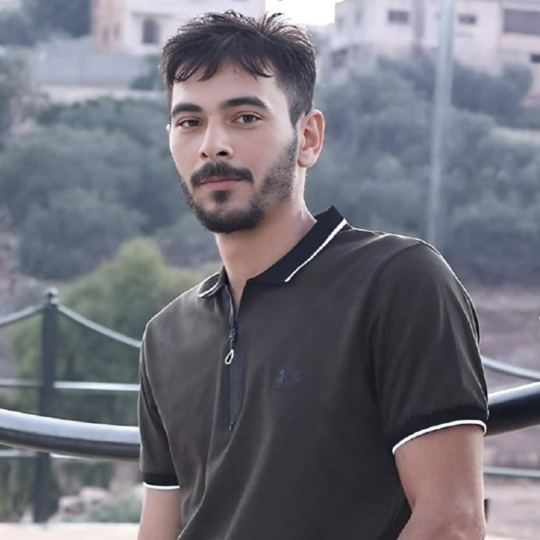
Ali Muhammad (34), who was martyred in Tulkarm in the West Bank;
Mahmud Jabr Ali (23);
Adam Muhammad Abdel Aziz (23);
twins Sari Mahmud Abdel Aziz (23) and Lubna Mahmud Abdel Aziz (23);
Salih Saadi (23);

Muhammad Nidal Yaqoub (22), who was martyred when occupation forces stormed Jalazone in the West Bank;
Izz al-Din Muhammad;
and Muhammad Abdel Aziz and his children Adnan Muhammad Abdel Aziz and Layan Muhammad Abdel Aziz.
You can read more about the human lives lost in Palestine on the Martyrs of Gaza Twitter account and here.
19 notes
·
View notes
Text
@sparkbeast20 for you darling. 🌻🌻
Beel & Saadie's kids
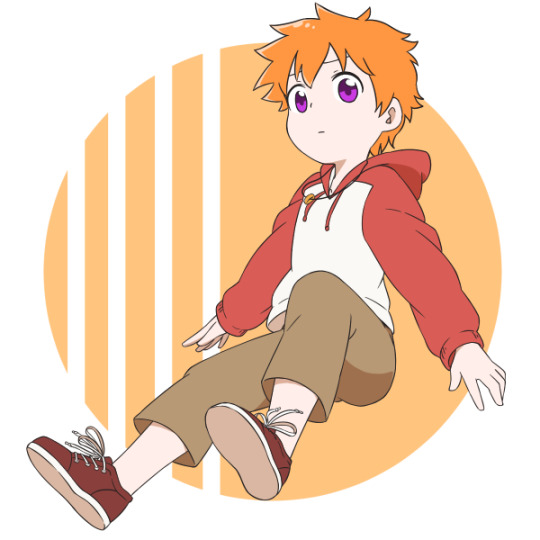
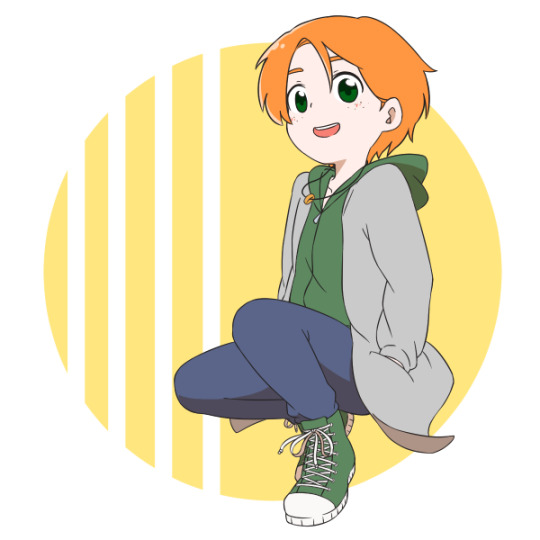

Julez (Julian) & Kit (Killian) + bonus toddler shot because why not?
Twin boys, Killian takes after his father. Pretty chill, very sweet and loving, can get worked up about food and loves cooking. Julez takes after his mother, he's older by a few minutes and takes his older brother job very seriously he looks after all his younger siblings. Loves animals, and is constantly bringing home all kinds of creatures.
Belphie & Saadie's kid
Pru (Prudence)


100% takes after daddy, sleepy darling, sweet as can be but can have an edge to her when's she's in a mood. Loves napping with dad, Satan reading to her, drawing with her younger siblings, dress ups with Asmo, and instigating mischief with her older brothers and Mammon. She is often the last to get caught, and can talk her way out of any punishment Lucifer throws her way. Laughs manically when she see Mammon hanging from the ceiling but always sets him free.
Leviathan & Saadie's kids
Eevee (Evelyn) & Silas


Eevee is obsessed with gaming like her dad and dinosaurs, every Halloween it's dinosaur costume or nothing. She is shy but comes out of her shell if her siblings are present. Very loud and is prone to silliness, thinks mammon is the funniest person on the planet. Very sweet and loving, also brings home creatures but always the scaley kind.
Silas is the youngest and is attached to his eldest brothers hip. Wants to be carried everywhere, is often found in Lucifer's room sleeping in his lap whilst listening to his records. Giggles whenever he sees Satan in his demon form, which always seems to calm Satan down.
@delphi-dreamin @sassykattery @attic-club-sandwich I know I said I wouldn't. But I did ok! I'm sorry, I'm terrible.
55 notes
·
View notes
Text
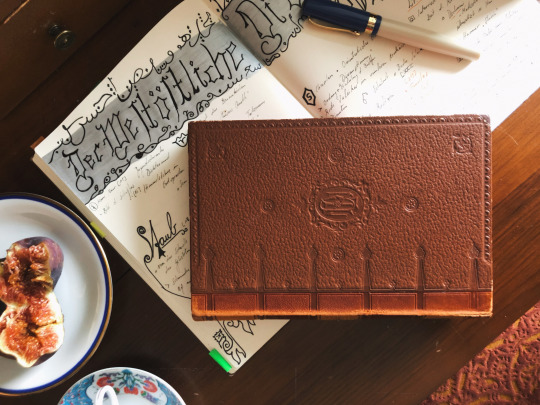

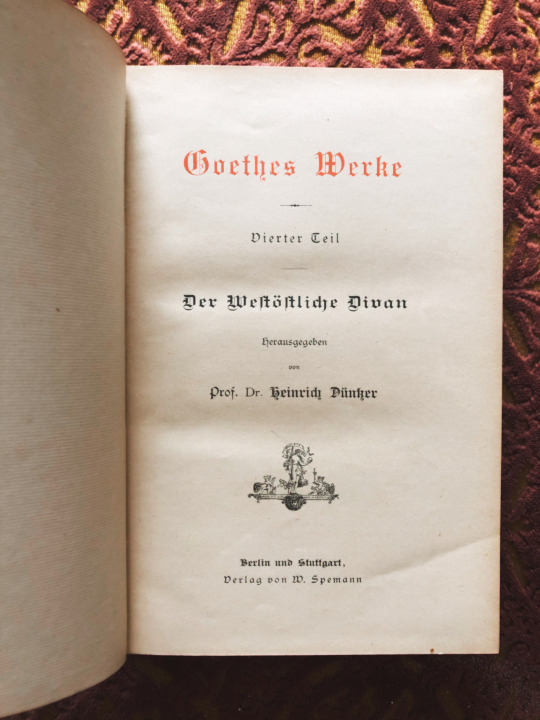
The "West-Eastern Diwan" by Goethe - A bridged beauty between Occident and Orient.
Published by Prof. Dr. Heinrich Düntzer, Berlin and Stuttgart, 1878.
It is said, that Goethe used the "oriental mask" to cover his pantheistic ideas, speaking trough the lips of the newly translated poets.
Next to the Hafez' poems, which where published and translated by the orientalist Joseph von Hammer, other literal and scientific sources were used as inspirational impact and to refine the tone of the great masters of Oriental poetry, like the academic achievements of Prof. Wurm, Prof. Paulus (Orientalist in Heidelberg), other translations of cultural impact like Rückert's "Östliche Rosen" (~ Eeastern Roses) the Mewlana-Transaltions of 1819 and the collection of August von Platen called "Ghaselen", Goethe corresponded with Boisserés and with one of the Grimm brothers.
Wilhelm von Humboldt praised the authencitiy of Goethe's work.
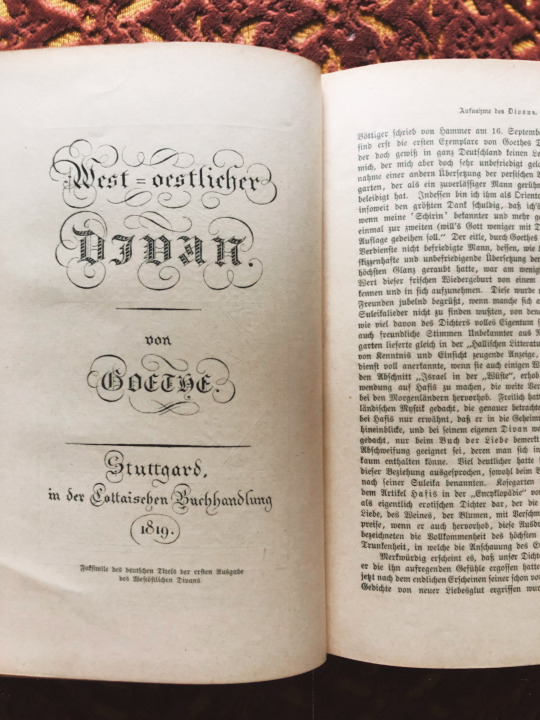

The "East-Western Diwan" is the last great cycle of poetry Goethe has wrote, his interest for Persian poetry arised in the time of the Rheinbund.
It can be traced, that this period of time disillusioned him, the diving into another time and continent is essential for escapism,
but as Goethe and his field of interest and curiosity is as deep as wide, he must felt like thrown like a freed bird into new heavenly realms.
The "Diwan Atmosphere" was created by reading several works and taking in Oriental elements.
So we can find "Madschnun and Leila" interwoven in the heart-shaking correspondence between Suleika and Hatem in the "Book Suleika". Expressions of the Dervish Hafis of Shiraz can be found, Tarafas, Labid (Prophet Mohammad called him the poet, who said the most true words; Labid converted to Islam and wrote eologies, but it is said, that he stopped practicing ?), Zoheir, Saadi and Hafez.
Saadi was also known as a sheik and was called "Poet-King" (or King-Poet, if you like :P) and if we would compare the structure of the poems, it is more likely, that Goethe imitated Saadi, rather than Hafez.
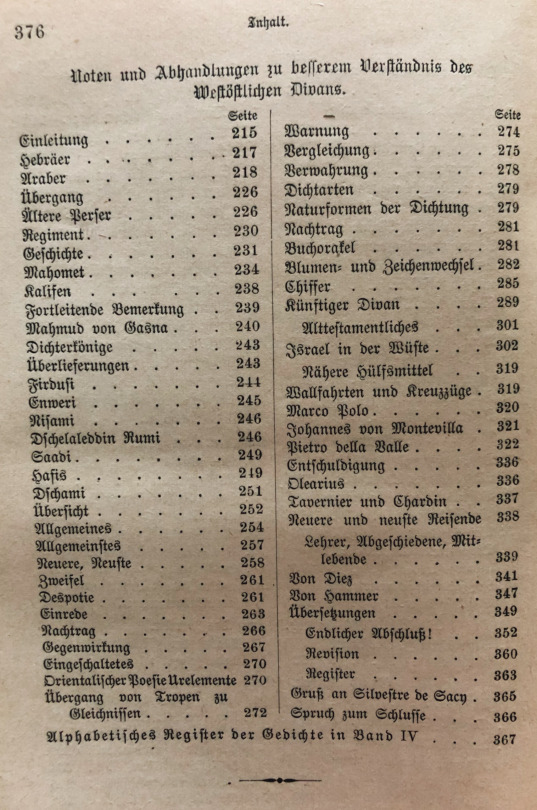
Goethe is playing wonderfully with expressions, merging wine and tears, praising the dust of the lover as better than safran and comparing the loved one to a drop of water and the lyrical-I as desert sand.
Numerology is emphasising the cultural background, drawing a link between the poet and the priest, pairing mystics and religion into ecstatic relief.
This wonderful work is a gift, for everyone, who sometimes had the feeling of getting ripped apart by two forces. It feels like the made-up gap between Europa and Asia is nothing but a fiction,
like a forgotten song of our cultural cradle.
Let us share the pomegranates of our culture, let us nourish from unkown fruits to break our borders, to sharpen our discernment,
to truely lift our feet and recognize the extraordinary.

#antiquarian book#world literature#19th century literature#book#reading#Goethe#East-Western Diwan#Östwestlicher Divan#cultural bridge#Persian poetry#Arabian culture#Oriental#Orient#poetry#poets#German poet#Johann Wolfgang von Goethe#1878#old book#antiquarian
10 notes
·
View notes
Note
what are your suggestions for starter poetry for people who dont have strong reading/analysis backgrounds
I've answered this a few times so I'm going to compile and expand them all into one post here.
I think if you haven't read much poetry before or aren't sure of your own tastes yet, then poetry anthologies are a great place to start: many of them will have a unifying theme so you can hone in based on a subject that interests you, or pick your way through something more general. I haven't read all of the ones below, but I have read most of them; the rest I came across in my own readings and added to my list either because I like the concept or am familiar with the editor(s) / their work:
Staying Alive: Real Poems for Unreal Times (ed. Nick Astley) & Being Alive: The Sequel to Staying Alive (there's two more books in this series, but I'm recommending these two just because it's where I started)
The Rattlebag (ed. Seamus Heaney and Ted Hughes)
The Ecco Anthology of International Poetry (ed. Ilya Kaminsky & Susan Harris)
The Essential Haiku, Versions of Basho, Buson and Issa (ed. Robert Hass)
A Book of Luminous Things (ed. Czesław Miłosz )
Now and Then: The Poet's Choice Columns by Robert Hass (this may be a good place to start if you're also looking for commentary on the poems themselves)
Poetry Unbound: 50 Poems to Open Your World(ed. Pádraig Ó'Tuama)
African American Poetry: 250 Years of Struggle and Song (ed. Kevin Young)
The Art of Losing: Poems of Grief and Healing (ed. Kevin Young)
Lifelines: Letters from Famous People about their Favourite Poems
The following lists are authors I love in one regard or another and is a small mix of different styles / time periods which I think are still fairly accessible regardless of what your reading background is! It's be no means exhaustice but hopefully it gives you even just a small glimpse of the range that's available so you can branch off and explore for yourself if any particular work speaks to you.
But in any case, for individual collections, I would try:
anything by Sara Teasdale
Devotions / Wild Geese / Felicity by Mary Oliver
Selected Poems and Prose by Christina Rossetti
Collected Poems by Langston Hughes
Where the Sidewalk Endsby Shel Silverstein
Morning Haiku by Sonia Sanchez
Revolutionary Letters, Diane di Prima
Concerning the Book That Is the Body of the Beloved by Gregory Orr
Rose: Poems by Li-Young Lee
A Red Cherry on a White-Tiled Floor / Barefoot Souls by Maram al-Masri
Deaf Republic by Ilya Kaminsky
Tell Me: Poems / What is This Thing Called Love? by Kim Addonizio
The Trouble with Poetry by Billy Collins (Billy Collins is THE go-to for accessible / beginner poetry in my view so I think any of his collections would probably do)
Crush by Richard Siken
Rapture / The World's Wife by Carol Ann Duffy
The War Works Hard by Dunya Mikhail
Selected Poems by Walt Whitman
View with a Grain of Sand by Wislawa Szymborska
Collected Poems by Vasko Popa
Under Milkwood by Dylan Thomas (this is a play, but Thomas is a poet and the language & structure is definitely poetic to me)
Bright Dead Things: Poems by Ada Limón
Teaching My Mother How to Give Birth by Warsan Shire,
Nostalgia, My Enemy: Selected Poems by Saadi Youssef
As for individual poems:
“Wild Geese” by Mary Oliver
[Dear The Vatican] erasure poem by Pádraig Ó'Tuama // "The Pedagogy of Conflict"
"Good Bones" by Maggie Smith
"The Author Writes the First Draft of His Weddings Vows (An erasure of Virginia Woolf's suicide letter to her husband, Leonard)" by Hanif Abdurraqib
"I Can Tell You a Story" by Chuck Carlise
"The Sciences Sing a Lullabye" by Albert Goldbarth
"One Last Poem for Richard" by Sandra Cisneros
"We Lived Happily During the War" by Ilya Kaminsky
“I’m Explaining a Few Things”by Pablo Neruda
"Stopping By Woods on a Snowy Evening" //"Nothing Gold Can Stay"//"Out, Out--" by Robert Frost
"Tablets: I // II // III"by Dunya Mikhail
"What Were They Like?" by Denise Levertov
"Those Winter Sundays" by Robert Hayden,
"The Patience of Ordinary Things" by Pat Schneider
“I, too” // "The Negro Speaks of Rivers” // "Harlem” // “Theme for English B” by Langston Hughes
“The Mower” // "The Trees" // "High Windows" by Philip Larkin
“The Leash” // “Love Poem with Apologies for My Appearance” // "Downhearted" by Ada Limón
“The Flea” by John Donne
"The Last Rose of Summer" by Thomas Moore
"Beauty" // "Please don't" // "How it Adds Up" by Tony Hoagland
“My Friend Yeshi” by Alice Walker
"De Humanis Corporis Fabrica"byJohn Burnside
“What Do Women Want?” // “For Desire” // "Stolen Moments" // "The Numbers" by Kim Addonizio
“Hummingbird” // "For Tess" by Raymond Carver
"The Two-Headed Calf" by Laura Gilpin
“Bleecker Street, Summer” by Derek Walcott
“Dirge Without Music” // "What Lips My Lips Have Kissed" by Edna St. Vincent Millay
“Digging” // “Mid-Term Break” // “The Rain Stick” // "Blackberry Picking" // "Twice Shy" by Seamus Heaney
“Dulce Et Decorum Est”by Wilfred Owen
“Notes from a Nonexistent Himalayan Expedition”by Wislawa Szymborska
"Hour" //"Medusa" byCarol Ann Duffy
“The More Loving One” // “Musée des Beaux Arts” by W.H. Auden
“Small Kindnesses” // "Feeding the Worms" by Danusha Laméris
"Down by the Salley Gardens” // “The Stolen Child” by W.B. Yeats
"The Thing Is" by Ellen Bass
"The Last Love Letter from an Entymologist" by Jared Singer
"[i like my body when it is with your]" by e.e. cummings
"Try to Praise the Mutilated World" by Adam Zagajewski
"The Cinnamon Peeler" by Michael Ondaatje
"Last Night I Dreamed I Made Myself" by Paige Lewis
"A Dream Within a Dream" // "The Raven" by Edgar Allan Poe (highly recommend reading the last one out loud or listening to it recited)
"Ars Poetica?" // "Encounter" // "A Song on the End of the World"by Czeslaw Milosz
"Wandering Around an Albequerque Airport Terminal” // "Two Countries” // "Kindness” by Naoimi Shihab Nye
"Slow Dance” by Matthew Dickman
"The Archipelago of Kisses" // "The Quiet World" by Jeffrey McDaniel
"Mimesis" by Fady Joudah
"The Great Fires" // "The Forgotten Dialect of the Heart" // "Failing and Flying" by Jack Gilbert
"The Mermaid" // "Virtuosi" by Lisel Mueller
"Macrophobia (Fear of Waiting)" by Jamaal May
"Someday I'll Love Ocean Vuong" by Ocean Vuong
"Still I Rise" by Maya Angelou
I would also recommend spending some times with essays, interviews, or other non-fiction, creative or otherwise (especially by other poets) if you want to broaden and improve how you read poetry; they can help give you a wider idea of the landscape behind and beyond the actual poems themselves, or even just let you acquaint yourself with how particular writers see and describe things in the world around them. The following are some of my favourites:
Upstream: Essays by Mary Oliver
"Theory and Play of the Duende" by Federico García Lorca
"The White Bird" and "Some Notes on Song" by John Berger
In That Great River: A Notebook by Anna Kamienska
A Little Devil in America: Notes in Praise of Black Performance by Hanif Abdurraqib
The Book of Delights by Ross Gay
"Of Strangeness That Wakes Us" and "Still Dancing: An Interview with Ilya Kaminsky" by Ilya Kaminsky
"The Sentence is a Lonely Place" by Garielle Lutz
Still Life with Oysters and Lemon by Mark Doty
Paris, When It's Naked by Etel Adnan
3K notes
·
View notes